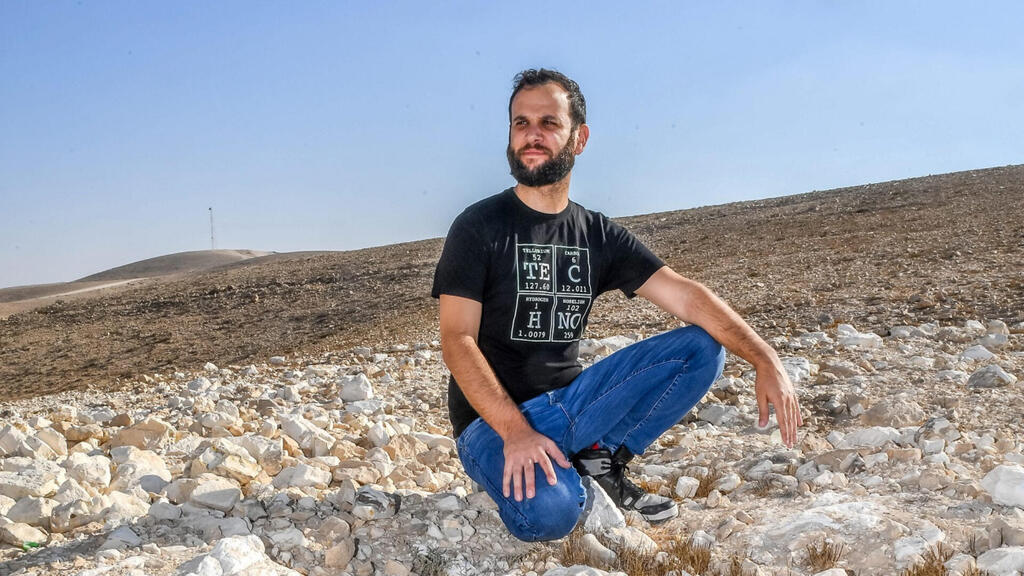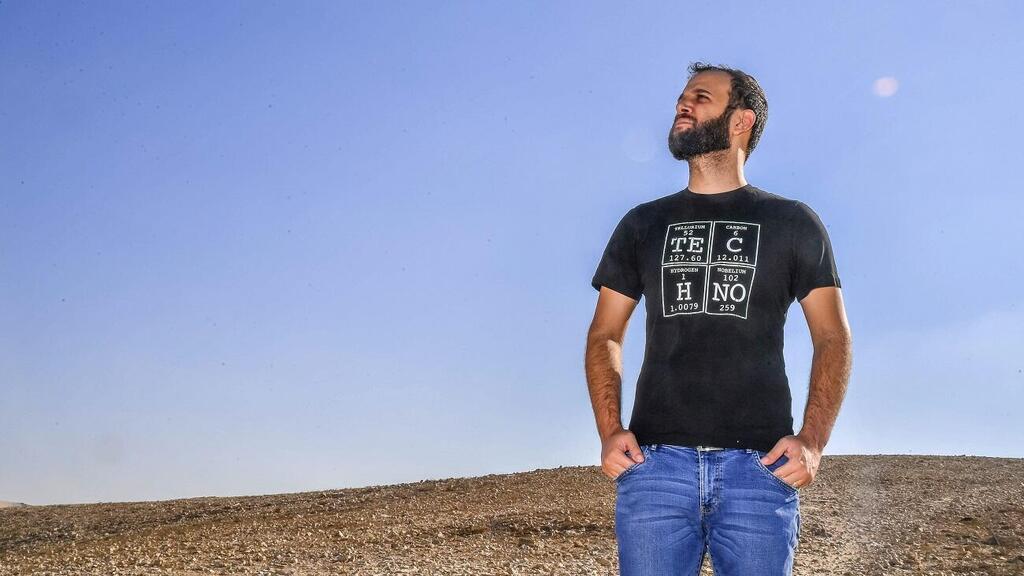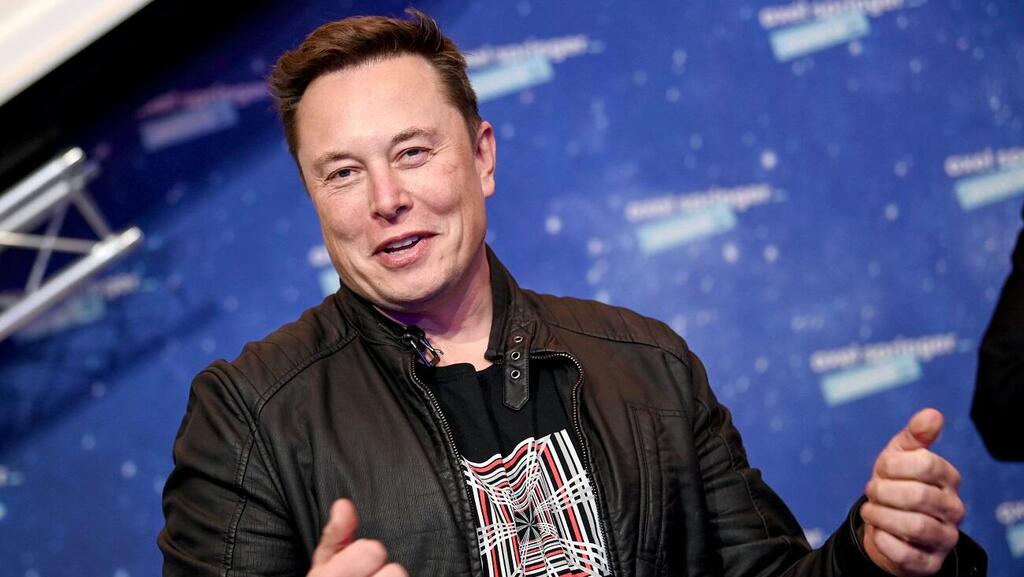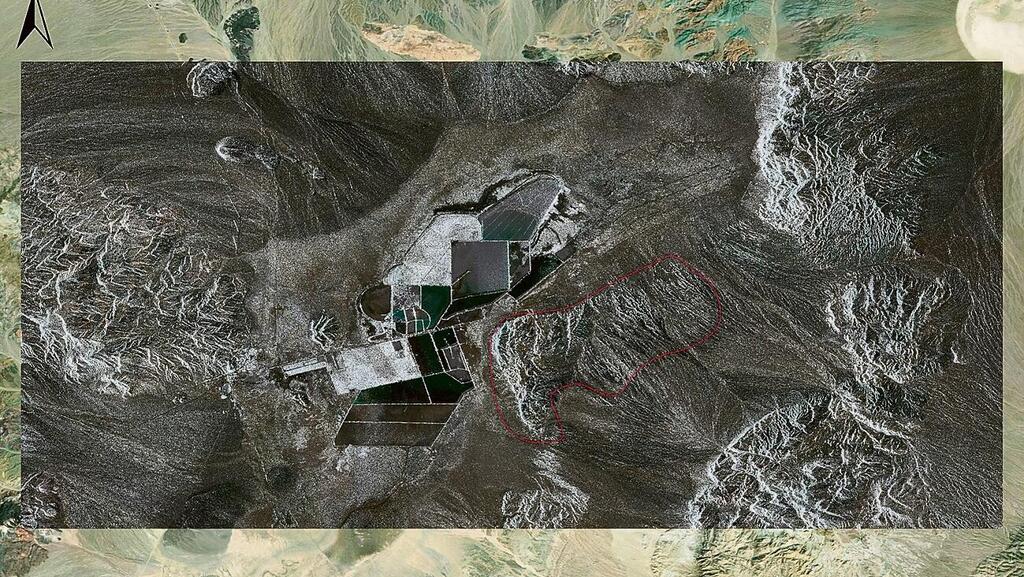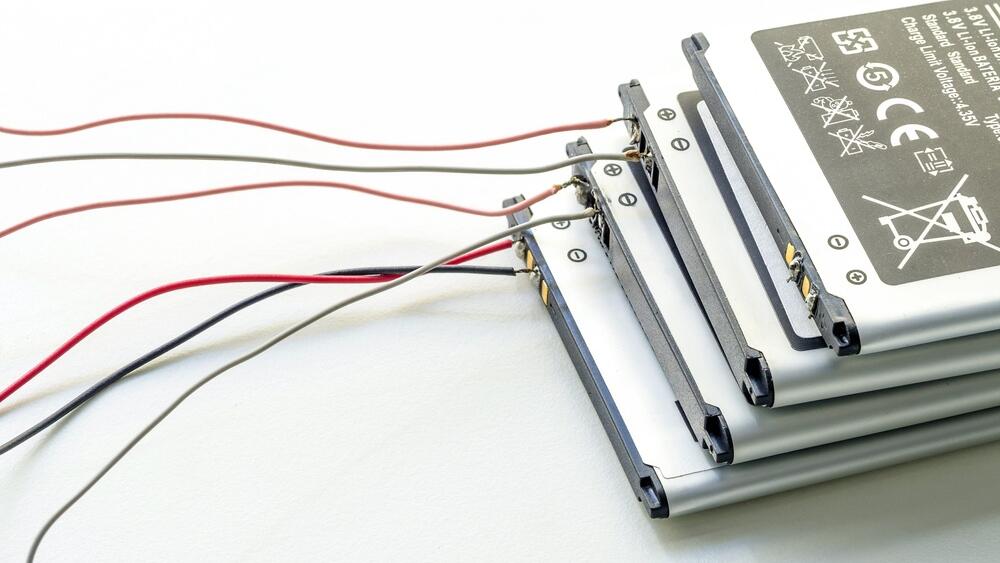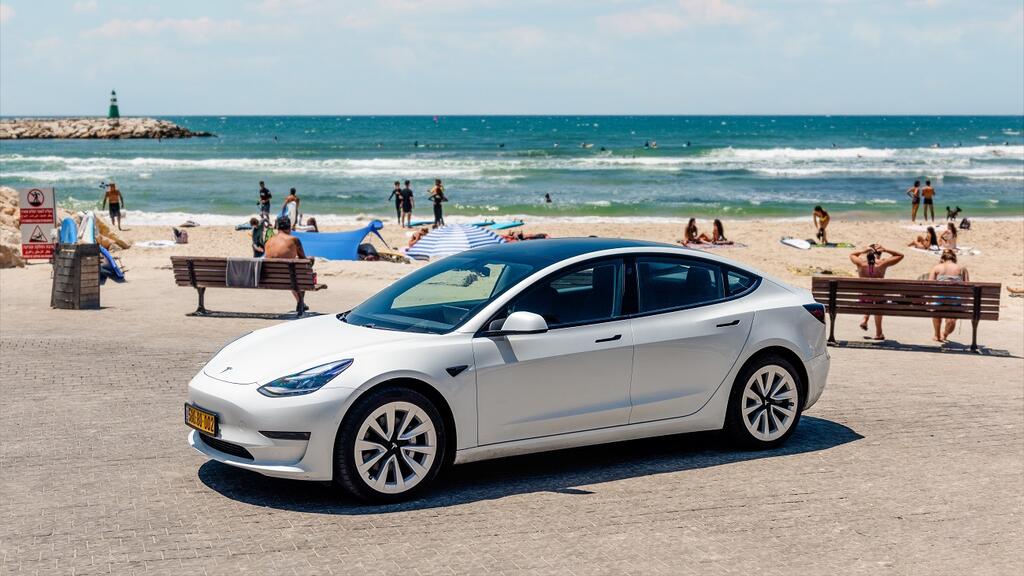Lauren Guy, a 35-year-old Israeli geophysicist and head of the ASTERRA start-up company, is hoping to solve the global lithium shortage.
Stories that may interest you:
The demand for lithium for the production of electric cars and batteries for electronics is nearly endless, and the price of this rare metal has grown a dozen-fold in the last couple of years.
Last August, Guy announced that his company had developed a new technology able to detect lithium found across Earth from the reaches of outer space. ASTERRA's technology was initially used to search for water on Mars and other planets.
The new technology is based on a photo-analysis algorithm utilizing an artificial intelligence to decipher satellite data to locate minerals hidden within the Earth's crust. According to the company, they've already managed to find lithium deposits underneath some U.S. deserts.
"What's going on with lithium today reminds me of the wild west and the gold rush," Guy says. "You strike the Earth, lay a claim to it and dig. It's a popular thing in the U.S., and there are many companies doing the same in Nevada, Utah and California, where there are likely lithium deposits."
"These digs cost half a million dollars, and the rate of finding lithium is one in a thousand, these are massive numbers," Guy explains. He believes his company's technology will lower exploration costs and help miners focus on areas where lithium was located from space via satellite imagery.
"Some 80% of the world's lithium is made in China or Australia today," Guy says. "The U.S. has concluded that it can't place the future of its economy into Chinese hands, and that it can't be sure China will deliver the resources it needs. It's similar to the gas situation between Russia and the EU."
"In 2021 U.S. President Joe Biden and the U.S. Department of Energy had plans to locate lithium, with the goal being to transfer shift of the lithium production from China to the U.S. by 2030. Many companies for locating lithium have sprung up in the U.S. It's an international issue, there's a major shortage and prices have shot up by thousands of dollars."
The shortage is so great, and prices so high that they led electric car giant Tesla CEO Elon Musk to post about it on Twitter, writing: "Price of lithium has gone to insane levels." According to Guy: "What Musk meant was that he, as Tesla, can't put his trust in mining companies operating today."
"He wants to control his own destiny, and that's why the American and Canadian markets are waking up," Guy explains. "When you approach Americans and tell them about a technology which can locate lithium from space; to them it's as if I'm the messiah. It's great for our company because our technology is in demand, but there's also the effect on the environment."
"Many Americans tell themselves 'Oh no, they're going to open more mining sites.' Some of the digging sites are found on indigenous reservations, and they rightly think of the digging as stealing and polluting their lands. People don't want mines around their cities, but they don't understand the impact this has on the climate."
"Lithium is helping the Earth to progress into renewable energy. We, as a company, say that these companies could only dig in one area, instead of a thousand once we direct them." Guy adds.
Guy founded ASTERRA in 2013. His thinking led him to believe that if we can find water on Mars, we can also find water on Earth. Millions of liters of water are wasted due to underground leakage, and the company can locate and prevent them, saving both water and expenses.
ASTERRA is operating in over 70 countries worldwide, with a wide market share in both the UK and the U.S., mainly in states experiencing acute water shortages like California, Utah and Nevada. Israel doesn't use much of the company's services.
The company's revenues for 2021 were estimated at $21 million and its market value sprung up to $150-200 million. The company is headquartered in San Diego and has offices in Japan, England and Israel.
In 2019, ASTERRA was named by the World Economic Forum as one of the top eight most promising Israeli companies to bring about a new industrial revolution. In 2021, Microsoft marked it as one of the highest potential businesses to involve artificial intelligence for environmental benefits.
"California is a liberal state, and the environment is always a relevant topic there," Guy says. "It starts with water and sewage. California is in the middle of a water crisis due to drought and the energy crisis, so they put a lot of effort into it. They're proud and spread the word around when they use our technology."
When asked about how he thought about searching for lithium, Guy said: "I thought about how to take our technology forward. In the end, all we do is search for mineral properties. I thought about how we could enter the market for lithium, which has very specific electrical signals."
"We made theoretical tests in our lab, saw it was possible and joined with two other companies researching lithium in the U.S." Guy said. "We initially had results of 70% likelihood of locating lithium which surprised us. Today we've already reached 90%, that tells me our radar technology is compatible with lithium."
"We applied everything we knew about water on lithium," Guy explains. "Gold is already a saturated market, if you find lithium deposits you can sell them to government bodies for hundreds of millions. These companies are companies that want to turn a profit, but most people I met who were into lithium were different."
When asked if they were more adventurous than others, Guy said: "Yes, but environmentally so. People dealing with regular metals are industrialists. There are younger people in the lithium industry and that's a good thing. These are people with a calling, who think about the planet's future. They put it a lot before they see the return because it means a lot to them, that's the way I see it."
Today, ASTERRA is hiring 75 more employees. "What makes us unique is that most of our employees are geologists, geophysicists, biologists and environmental engineers," Guy says. "These are people who usually end up in the high-tech industry. Many of them studied with me. The most obvious path for a radar company is to head into the military industry."
Guy says that there were offers that came to him from military industries as well. "There were times when army officials approached us. They asked us about helping with terror tunnels, but we have our eyes set on helping the planet. It started with the water and sewage sector and solving issues there. I always think how fun what I do is."
"Every high-tech company has good people," Guy explains. "What I like about our company is that people there are environmentalists, we're like a mini-university, and you don't see that in many companies."
When asked if the global high-tech crisis had an impact on the company, Guy said: "Unlike other companies, COVID had a good impact on us. The world focused on itself and began taking care of environmental issues. We suddenly had a lot of business coming from government bodies and private corporations."
"Everyone had free time to take care of the problems," Guy said. "We didn't fire a single employee and even made some money, we didn't feel the crisis yet. We moved to our new office in Kfar Saba and now were hiring. We're very conservative about how we use the money, we want to be profitable, unlike other companies that use the money to grow rapidly."
"Yes, the high-tech bubble might've popped a little, in the past money would flow there constantly," Guy says, "but now that things are more expensive, investors want something that sells in practice, not just in theory, to solve specific problems, and lithium is an issue that brings attention."
"In the University of San Diego they have a department handling lithium exclusively, and I was invited to speak there," Guy says. "The U.S. is pushing hard on that market."
When asked about Israel, Guy said: "I always voted for more environmental parties, but now there's no party that seems to me as really caring about the issue, you see it in the people joining politics, everyone cares more about the security issues, which are important, but there are more important things."
"I personally worry about my children's future," Guy explains. "What country will be here 50 years from now? The population growth is going crazy and no one cares about the environment, what country are we leaving for our children?"
"We have an unclear goal about reducing pollution and moving to renewable energy, but nothing is done to that end. Like electric cars for example, which are incentivized in Israel. I understand that security is important, but I worry about the environment very much."


